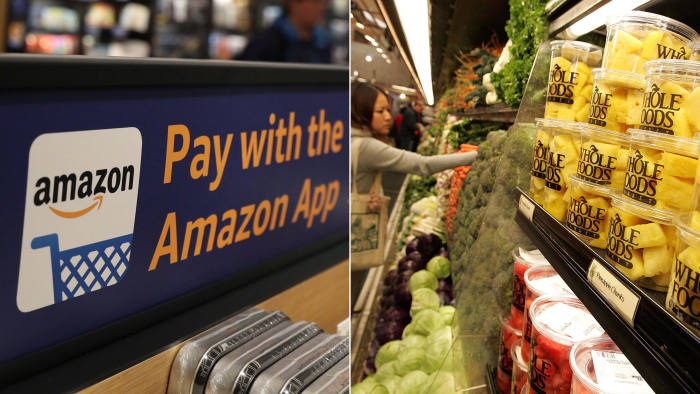
 |
|
|||||||
| Coffee Shop Talk of a non sexual Nature Visit Sam's Alfresco Heaven. Singapore's best Alfresco Coffee Experience! If you're up to your ears with all this Sex Talk and would like to take a break from it all to discuss other interesting aspects of life in Singapore, pop over and join in the fun. |
 |
|
|
Thread Tools |
|
#1
|
|||
|
|||
|
An honorable member of the Coffee Shop Has Just Posted the Following:
The tides are turning. Those who're still stuck in the Cold War mentality, where all's that's from the West is progressive and creative and all that's from the East is backward and imitative, are in for a rude shock if they've not been keeping up with what's happening in China. Ignore the world's largest economy (by PPP GDP; second largest by nominal GDP) at your own peril. Just a reminder: as recent as 1850, China was still the world's largest economy, followed by India and the British Empire. Great ancient civilizations don't disappear; they go through cyclical wax and wane. The world is now seeing the ascendancy yet again of the Middle Kingdom, and, perhaps, the Indic civilization. Now let the usual China- & US-bashers come in and have their say. China vs US: who is copying whom? New generation of China tech groups blazes trail in services and business models  Fish robots swim in a pool during last year's China Hi-Tech Fair in Shenzhen © Reuters SEPTEMBER 18, 2017 by Louise Lucas in Hong Kong China is gradually shedding its reputation as the world’s technology copycat. It still spawns lookalikes, whether they be GoPro-style action cameras or Didi Chuxing, a ride-hailing app that looked awfully like Uber until it added Chinese characteristics and vanquished its former rival. But some Chinese companies are also leading the way in new services and business models. There are several reasons. Competing in a protected space — the likes of Facebook, Twitter, and Google’s search engine are blocked in China — mitigates risk and encourages experimentation. So too does a big market. But the move toward pioneering also reflects a generational change, says Derrick Xiong, chief marketing officer of drone maker Ehang. The new generation of entrepreneurs, “the post-90s, were born to be global,” he says; “they have never experienced hard times in China so they have a completely different mindset” more akin to that of their peers in the US or Europe than their parents.Here are some sectors in which made-in-China innovations are blazing a trail. Bike-sharing  Left: A commuter rides on a Mobike bicycle along a street in Shanghai, China; Right: A promotional photo from LimeBike's press kit © LimeBike/Bloomberg China has embraced bike-sharing, pioneering a dockless model that offers cyclists advantages over comparable services in London and New York: bikes are unlocked using mobile apps, and can be picked up and left anywhere. Many are even GPS-tracked. Mobike (orange) and Ofo (yellow) have led the pack, followed by Xiaoming’s blue bikes. One financier, only half joking, opines that the only barrier to entry will be when they run out of colours. A subsequent crackdown by regulators, irked at the piles of dumped bikes littering cities, portends potholes on the road. But that hasn’t deterred the like of LimeBike from rolling out a similar service in the US states of California, North Carolina and Florida following the dockless, QR code-based Chinese model. QR codes  For much of China, the QR code — a type of barcode — is the key that unlocks the digital world. A swipe of the matrix with a mobile device lets a user hire a bike, pay for goods and grab a new contact’s details: why swap business cards when you can just hover your phone over that of your new acquaintance? Companies in the US, where the QR code was dismissed in 2013, now seem to be changing their view. Snapchat picked up the idea in 2015, allowing users to follow one another as easily as their WeChat peers by scanning each others’ QR codes, and proceeded to facilitate their use to access websites. Facebook this year is piloting ‘rewards’ QR codes to secure discounts in certain shops, while Spotify has adopted the technology to allow users to share music. Social media  WhatsApp’s launch last month of business accounts showed the US messaging app taking another step down the path forged by Chinese peer WeChat. WeChat, Tencent’s chat and social media app, has long courted the business world. It is how government, celebrities and businesses from Burberry to Mondelez connect with customers in the Chinese social media space — spicing up their chat with cool fashion show snaps, special offers and sales promotions — and post information or news. WeChat has more than 20m ‘official accounts’, according to industry estimates, though not all are verified. WhatsApp is now jumping on that bandwagon, following in the footsteps of WeChat. In an effort to help businesses keep in touch with their customers and to make money the Facebook-owned app has begun offering ‘verified profile’ accounts, so customers know they are contacting the right shop or service. Retail  The world drew a collective gasp when Amazon splashed out $13.7bn in June to buy Whole Foods, bringing its cut-throat online competition to the bricks-and-mortar world of artisanal breads and organic kale. But Chinese rivals were ahead of the game. Ecommerce giant Alibaba snapped up stakes in domestic supermarket group Lianhua in May and before that, in department store Intime. JD.com, which operates a similar asset-heavy model to Amazon, has outlined plans for a massive bricks and mortar presence. Alibaba calls the model “new retail”, fusing the physical and online worlds to better please customers — try on a frock, buy cat food from the store for later delivery and a rice box to takeaway there and then — and ultimately amass more data for itself. What next? There are plenty of innovations still to tap or expand. Mobile payments in the US are a fraction of those in China, where the market was worth $8.8tn last year, according to iResearch. Gifting digital money — for instance, at Chinese new year — is taking hold elsewhere, already adapted in India via Tencent-backed Hike, a New Delhi-based messaging unicorn. But arguably the most covetable trend in China is the most basic: education. China last year produced roughly nine times as many graduates in science, technology, engineering and mathematics as the US. Even allowing for China’s bigger population, it still punches heavily above its weight, suggesting lots of room for many more innovations to be birthed in China. Click here to view the whole thread at www.sammyboy.com. |
| Advert Space Available |
 |
| Bookmarks |
|
|
 t Similar Threads
t Similar Threads
|
||||
| Thread | Thread Starter | Forum | Replies | Last Post |
| Serious China vs US: Who is Copying Whom? | Sammyboy RSS Feed | Coffee Shop Talk of a non sexual Nature | 0 | 20-09-2017 09:00 AM |
| Chitchat Failed investment despite copying others | Sammyboy RSS Feed | Coffee Shop Talk of a non sexual Nature | 0 | 08-07-2016 04:10 AM |
| When will China stop stealing and copying from others? | Sammyboy RSS Feed | Coffee Shop Talk of a non sexual Nature | 0 | 06-02-2014 07:50 PM |
| When will China stop stealing and copying from others? | Sammyboy RSS Feed | Coffee Shop Talk of a non sexual Nature | 0 | 06-02-2014 07:20 PM |
| When will China stop stealing and copying from others? | Sammyboy RSS Feed | Coffee Shop Talk of a non sexual Nature | 0 | 06-02-2014 06:40 PM |